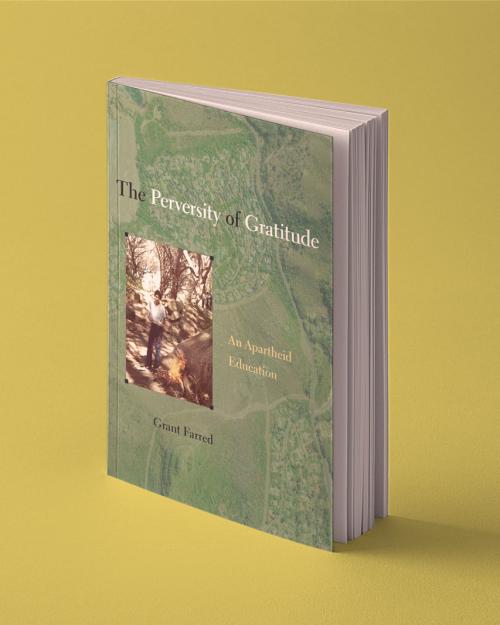Schools under the purview of the Coloured Affairs Department in 1970s South Africa were designed to under-educate students – or not educate them at all, according to scholar Grant Farred, who received his secondary and college education in precisely this system.
Yet “out of the most adverse conditions for pedagogy emerges a lifelong commitment to thinking,” Farred, professor of Africana studies in the College of Arts and Sciences, writes in “The Perversity of Gratitude: An Apartheid Education.”
In the book, which blends political and philosophical critique with personal reflection, Farred describes his experience of flourishing intellectually, despite and even thanks to being educated under apartheid, while also analyzing concepts that made such an education possible. Starting in 1976, he attended Livingstone High School in Cape Town and then University of the Western Cape, both segregated. Farred testifies how four remarkable teachers taught him how to think, a fundamental lesson that’s guided his academic trajectory and informed his philosophy.
The College of Arts and Sciences spoke with Farred about the book.
Question: Why did you decide to blend philosophy, political critique and personal history in one book, and what challenges did you encounter while writing?
A: The form which “Perversity” took was, in truth, decided by the writing. It took a long time for that form to manifest itself, a style entirely its own. It blends the philosophical (thinking), the political (apartheid), the pedagogical (its own instantiation of apartheid politics, of course), all of which comes together in the four teachers who anchor “Perversity.” The personal element, in this way, mediates the project.
A friend of mine has dubbed the book a “philosophical memoir.” It seems to me the most accurate description. Like all memoirs, the collectivity presses hard against the singular “I.” That “I” always belongs to some mode of social organization other than itself. It always stands in for, stands in as, something more than itself. That is the idiom that predominates in “Perversity.”
Q: You write that your apartheid education trained you, above all, to think: How does this lesson transcend or even flourish in repressive circumstances?
A: To THINK is to grapple with what it means to be in the world. To THINK is to struggle with how to be in the world, how to be in relation to the other.
The preeminent figure in my thinking about thinking for the last twenty years has been the German philosopher, Martin Heidegger. For Heidegger, the two preeminent difficulties which philosopher should take up is Being (“Sein”) and thinking.
One does not, and can never, “master” thinking. What Heidegger calls upon us to do is to think thinking. In “Was Heisst Denken?” (“What is Called Thinking?”) Heidegger is declarative: “We do not know what thinking is, but we know when we are not thinking.”
If “Perversity” constitutes the recounting of how an extremely repressive political situation, apartheid, proved, against all historical, pedagogical and political expectation, to provide “optimal” conditions to learn thinking, it does not mean that there is a neat obverse situation. It does not mean that thinking will necessarily flourish under conditions of material plenty or in a society that takes itself to be a free, democratic society.
I make this point in “Perversity” by drawing a contrast between my disenfranchised apartheid education and that of my white counterparts who, for all intents and purposes, were supposed to have had, in the logic of apartheid, a superior educational experience. Instead, “Perversity” argues, it was precisely the opposite. It is for this reason that the opening line in “Perversity” reads: “Apartheid made me think.” What that means is that, as teacher, under conditions unimaginably more favorable than mine, I am called upon to teach thinking. Even as I, the teacher, must, following Heidegger’s injunction learn, again and again, thinking.
Q: Who do you hope will read this book?
A: In writing “Perversity” I was able to honor my teachers and my colleagues – those folks who graduated with me or within a few years of my graduation.
Three of those colleagues have undertaken to do something that I would say gets at this question much better than I can: They are considering donating copies of “Perversity” to the Livingstone High School library so that reading it will open up worlds for those who roam the hallways of Livingstone as we once did.
Livingstone will turn 100 in 2026. Our class entered the institution on the occasion of its 50th anniversary.
I find it salient that I have been assigned the work of accounting for our time at Livingstone. Whatever my struggle with the institution, a struggle I suspect will never cease, I now stand on the cusp of a singular responsibility: that what I have written will provide the raw material for thinking about how to be in a post-apartheid world, a project undertaken a good 8,000 miles from the scene of origin. Or, if you will, the scene of a crime most fortuitous and fecund.




